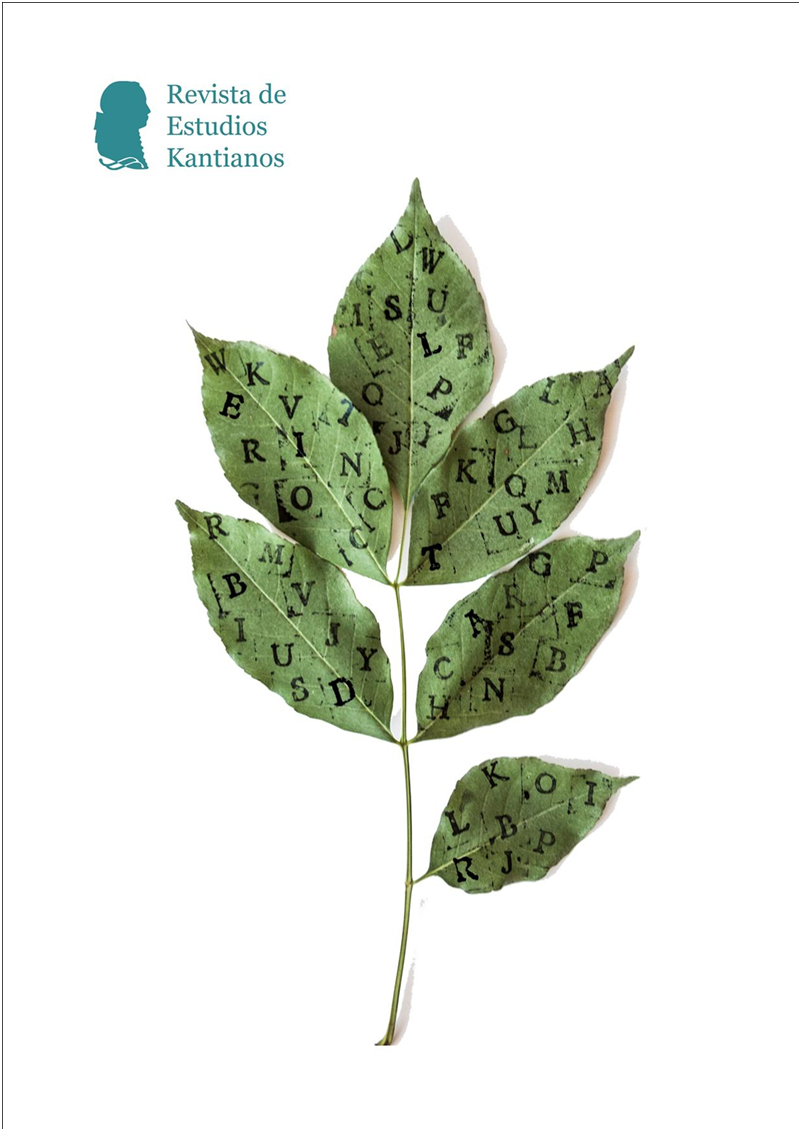Objetividad y significado en los juicios analíticos
DOI:
https://doi.org/10.7203/REK.9.1.28156Keywords:
Significado lógico, objeto en general, verdad formal, analiticidad, referencia Abstract
Abstract
Si los juicios analíticos se entienden solo en función de la relación de inclusión conceptual entre sujeto y predicado, debe sostenerse que no tratan sobre objetos y, por tanto, que no tienen significado. En este trabajo muestro que, para Kant, los juicios analíticos sí tratan sobre objetos, en concreto, sobre el objeto en general, y que, si bien no se les puede asignar significado objetivo, se les debe asignar significado lógico.
 Downloads
Downloads
 References
References
Allison, H. (2004). Kant’s Transcendental Idealism. An Interpretation and Defense (2a ed. revisada y aumentada). Yale University Press.
Gram, M. S. (1980). The Crisis of Syntheticity: The Kant-Eberhard Controversy. Kant-Studien, 71.
Heckmann, H.-D. (1981). Was ist Wahrheit? Eine systematisch-kritische Untersuchung philosophischer Wahrheitsmodelle. Winter.
Lu-Adler, H. (2013). The Objects and the Formal Truth of Kantian Analytic Judgments. History of Philosophy Quarterly, 30, 117-193.
Nolan, J. P. (1979). Kant on Meaning: Two Studies. Kant-Studien, 70, 113-130.
Oroño, M. (2022). Kant and the objective, logical and transcendental meaning of the categories. Estudos Kantianos [EK], 10(1), 185. https://doi.org/10.36311/2318-0501.2022.v10n1.p185
Paton, H. J. (1936). Kant’s Metaphysic of Experience: A Commentary on the First Half of the «Kritik der reinen Vernunft». George Allen & Unwin.
Proops, I. (2005). Kant’s Conception of Analytic Judgment. Philosophy and Phenomenological Research, 70, 588-612.
Rödl, S. (2006). Logical Form as a Relation to the Object. Philosophical Topics, 34, 345-369.
Rosenkoetter, T. (2008). Are Kantian Analytic Judgments About Objects? En V. Rohden, R. R. Terra, G. A. de Almeida, & M. Ruffing (Eds.), Recht und Frieden in der Philosophie Kants: Akten des X. Internationalen Kant-Kongresses (Vol. 5, pp. 191-201). Walter de Gruyter.
Shaffer, J. (1962). Existence, predication, and the ontological argument. Mind, 283, 307-325.
Steinbüchel, T. (1913). Das Wahrheitsproblem bei Kant. En J. Geyser (Ed.), Studien zur Geschichte der Philosophie: Festgabe zum 60. Geburtstag Clemens Baeumker (pp. 393-415). Aschendorff.
Straulino, S. (2021). Concepto de un objeto en general y categorías en Kant. Anales del seminario de historia de la filosofía, 38(1), 79-89.
Tolley, C. (2007). Kant´s Conception of Logic [Doctoral]. Universidad de Chicago.
Vanzo, A. (2012). Kant on Truth-Aptness. History and Philosophy of Logic, 33, 109-126.
Vigo, A. G. (2015). Kategoriale Synthesis und Einheit des Bewusstseins. Zu Kants Lehre vom Verhältnis zwischen Wahrnehmung und Erfahrung. En R. Enskat (Ed.), Kants Theorie der Erfahrung (pp. 169-200). De Gruyter.
Downloads
Published
How to Cite
-
Abstract112
-
PDF (Español)50
Issue
Section
License
![]()
The authors who publish in this journal agree with the following terms:
- The authors retain their copyright and guarantee to the journal the right to be the first to publish the work and to license it under a Creative Commons Attribution License that allows others to share the work with an acknowledgement of its authorship and the initial publication in this journal.
- Authors may separately establish additional agreements for non-exclusive distribution of the version of the work published in the journal (for example, placing it in an institutional repository or publishing it in a book), with acknowledgement of its initial publication in this journal.
- Authors are allowed and encouraged to disseminate their work electronically (e.g., in institutional repositories or on their own website) before and during the submission process, as this can lead to productive exchanges as well as earlier and greater citation of published work (see The Effect of Open Access).








